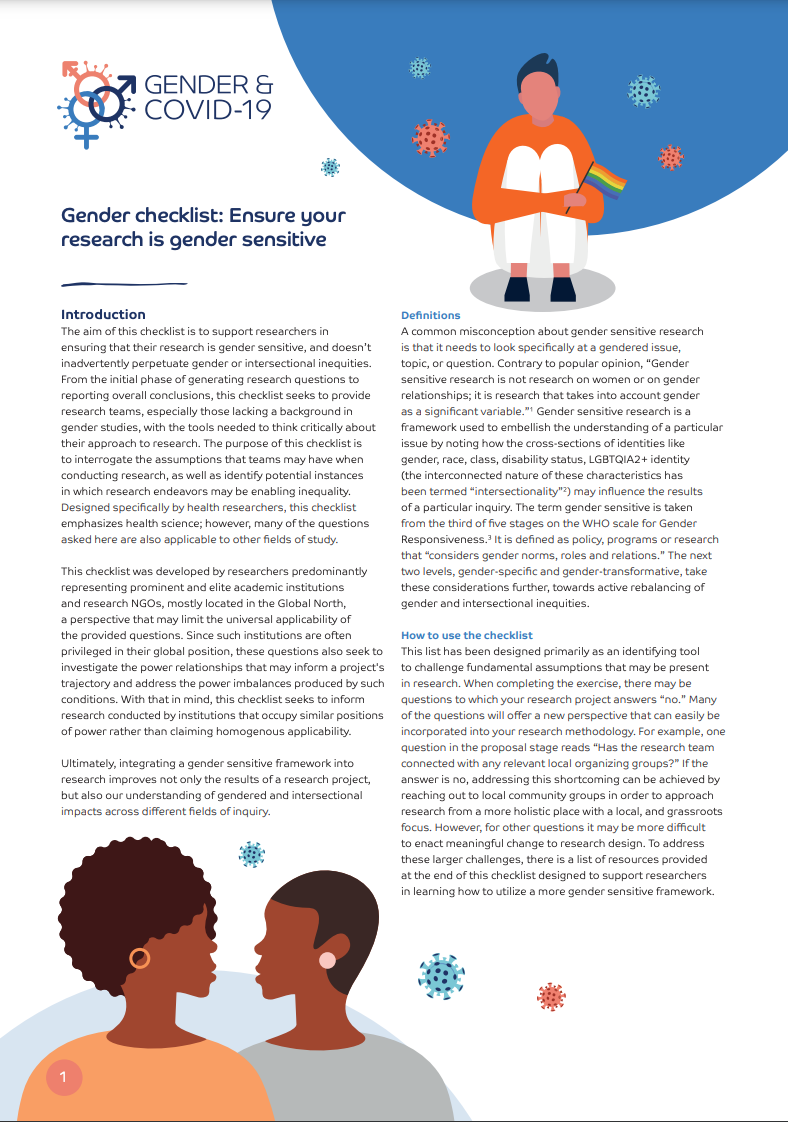The aim of this checklist is to support researchers in ensuring that their research is gender sensitive, and doesn’t inadvertently perpetuate gender or intersectional inequities. From the initial phase of generating research questions to reporting overall conclusions, this checklist seeks to provide research teams, especially those lacking a background in gender studies, with the tools needed to think critically about their approach to research. The purpose of this checklist is to interrogate the assumptions that teams may have when conducting research, as well as identify potential instances in which research endeavors may be enabling inequality. Designed specifically by health researchers, this checklist emphasizes health science; however, many of the questions asked here are also applicable to other fields of study.
This checklist was developed by researchers predominantly representing prominent and elite academic institutions and research NGOs, mostly located in the Global North, a perspective that may limit the universal applicability of the provided questions. Since such institutions are often privileged in their global position, these questions also seek to investigate the power relationships that may inform a project’s trajectory and address the power imbalances produced by such conditions. With that in mind, this checklist seeks to inform research conducted by institutions that occupy similar positions of power rather than claiming homogenous applicability.






